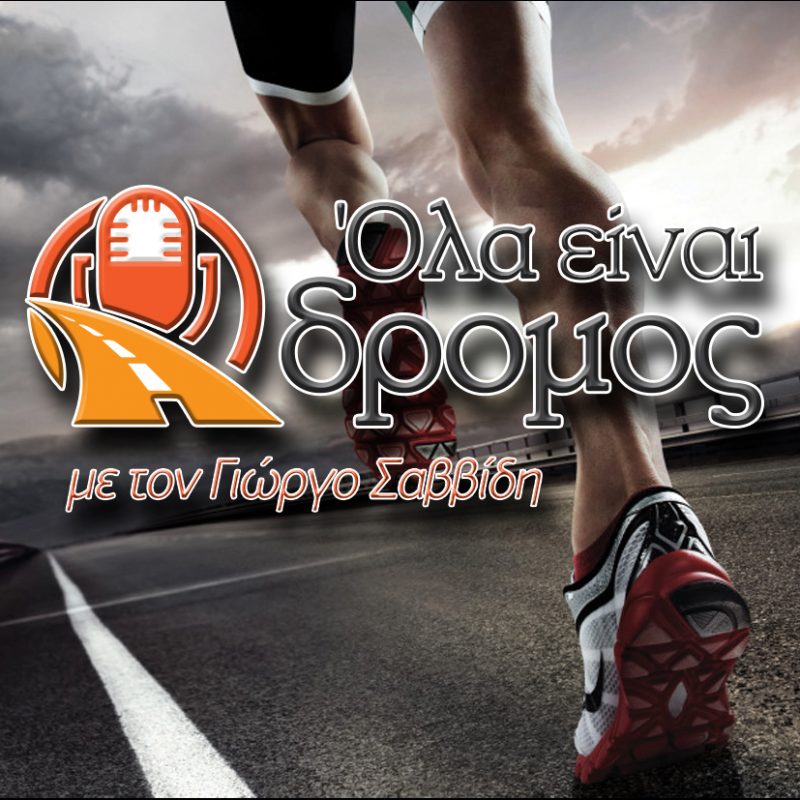Podcast Guest “It's a long road” is triathlete and coach Aris Myrkos. With Aris we will have an interesting discussion and we will focus more on the results of a recent scientific study by him and his team on the ideal tactical approach to the Authentic Athens Marathon.
Aris is a Graduate of T.E.F.A.A. Komotini in 2011, majoring in coaching. He also holds a master's degree from the same institution since 2014, specializing in "Maximizing Athletic Performance & Performance". In her scientific field aerobic exercise he has written and participated in numerous studies which are published in international conferences, while he has prepared two theses on aerobic interval training and its acute adaptations to human physiology.
Since 2015 he is a Ph.D. candidate of the Democritus University in the field of ergophysiology and exercise physiology, with the aim of continuous development and finding new methods, techniques and knowledge to maximize sports performance and optimize the training process .
Podcast Interview Highlights “It's a long road" by Ari Myrko.
02:33 Ari, apart from the fact that you are known in the sports community and you certainly have a lot of experience and knowledge, the reason for today's discussion was a recent scientific study that you did with your team and it concerns the Classic route of Authentic Marathon of Athens which is actually in 10 days from today.
04:02 So to begin with, would you like to tell us a few words about yourself and your involvement in Sports and then let's go into the details of your study?
06:45 The study therefore concerns the critical parameters of aerobic performance and how they contribute to the marathon performance of the classic course. Can you tell us a little about this study and why the Athens Marathon was chosen?
10:45 And what were the conclusions reached?
12:10 How proportionally do the athletes slow down on the uphills of the Classic Course?
14:28 A simple athlete will wonder how he finds his lactate threshold;
16:25 It is beneficial to do something ergometric or does it not matter so much to amateur runners?
17:37 What are the most important factors that determine the rate at big distances;
18:25 What pace should I have in the Marathon and what determines it? I mean what would be the best pacing strategy? Should I go with a steady pace, a negative (speed improvement over time) or a positive pace?
20:54 What is the VO2 Max and how important is it?
22:20 H maximum speed in VO2 Max is just as important?
22:55 Do these two factors also determine our training plan?
24:43 What should a weekly training and what is the role of each training?
28:15 How difficult and complex is it to design a CORRECT program? Is it the same for everyone?
31:05 How important are the training zones and if we should train based on them?
32:40 In which zone should our training sessions take place?
33:40 What is the difference between a simple amateur runner who runs on his own for an hour at a time, say 4 times a week, from one who does it more purposefully for the same amount of time but with a coach and a training plan?
36:50 What is the lactate threshold and what does it define us for?
39:50 What do we mean by road economy?
41:40 What would you advise all those who in 10 days will be at the starting line of Authentic Marathon of Athens;
45:05 Training, family, work, great performances, how do they all fit together in 24 hours?
46:50 In closing, I would like to ask you how and where someone can find you.
Aris Myrkos
Facebook Profile: https://www.facebook.com/aris.myrkos
ScienceTraining.gr: http://sciencetraining.gr/
————————-
Everything is a road:
Facebook Page
Instagram
website: https://olaeinaidromos.gr
website: http://georgiossavvidis.com/

